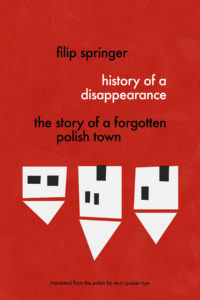
The US of A finally stamped its visa in my black pocketbook. Jazz fusion played in my ear, songs from an album fittingly titled This Meets That. I floated out of the document collection center in Nehru Place, New Delhi.

The US of A finally stamped its visa in my black pocketbook. Jazz fusion played in my ear, songs from an album fittingly titled This Meets That. I floated out of the document collection center in Nehru Place, New Delhi.
He calls me and says, “I got a good North Country story for ya.” Then after the story he says, “I don’t know, man. I just feel like it would be cool to write something about the people up here. They’re such fuckin’ characters.” Or he’ll say, “If we could just write something about Mom and Dad, you know. I think our upbringing was super unique.” He has also talked about writing rants about people who don’t know the fucking speed limits around here, who hold him up on the two-lane highways that wind through our mountains. Or about making a website that would provide snarky news about the North Country, with headlines like Wilburs Still Fucking Inbred and Way to Fuck It Up, APA. We’ve been having one-way conversations about his writing projects for years. Sometimes he talks about working on them together, and sometimes he talks about doing it himself. I tend not to say much.
A June day under the Jungfrau.
Near the railway that brought her here,
an old woman sits on a bench.
She isn’t facing the Jungfrau
but the Hotel Belvedere
The paintings may be best known for what they are not. They were made on the heels of work now considered Matisse’s most groundbreaking, the paintings from the period between 1907 and 1917 when he engaged with the early perceptions of modernism. His trajectory through these years widened his ambitions and shows him becoming more cutthroat within them, first leaving behind the saturated exuberance of fauvism, then, by degrees, flattening color and form into strange and austere near-abstractions.
By DAVID LEHMAN
1.
Gather ye rosebuds come what may,
Old time’s a frequent flyer,
And many lovers that link today
May soon be forced to retire.
Let each of us have one, each of us be one
Soul unlinking from its mate in the past
To eat the golden apples of the sun.
Youth fondly supposes it will last.
We are barreling north out of Salt Lake City, and David is talking about the clouds. “They don’t look like the clouds in the East,” he says. “They’re uniform, but fuzzy.” Out the window, the topaz sky shimmers over the mountains. The snowy peaks echo the color of the fuzzy western clouds, which stretch across the air like floating bedsheets.
Spring Benefit & Issue LaunchTuesday, May 2nd Nuyorican Poets Cafe
Celebrate spring, fresh new literature, and The Common at our Issue 13 launch party and benefit! Join us for a night at the Nuyorican Poets Cafe, featuring Honor Moore, Cortney Lamar Charleston, Bethany Ball, and Mensah Demary.
|
At The Common, we’re celebrating Poetry Month with new work by five of our contributors.
Fayum Portrait [Deal]
I’ve sent a map on wax paper–
What he loves arrayed as clumsy petals.
If it arrives,
someone will ink it in his back,
so it will go with him
like a paw stuffed in a casing,
boardwalk mojo to ward off the hail of RPG, AK,
FOB after FOB, Amputee Ward, TBI, Arlington.

Translated by SEAN GASPER BYE
Decades of neglect and environmental degradation led to Miedzianka being declared uninhabitable, and the population was evacuated. At the center of the city, the church took the longest to disappear.
It isn’t what he said in Casablanca
and it isn’t strictly true. Nonetheless
we’ll always have them, much as we have Paris.